Ethiopia has been chosen as one of the two priority countries for the Skybird Programme. This means that additionally to their participation in the regional micro-grant cycle they can apply for as a National Society, Ethiopia Red Cross Branches are also allowed to submit their own project proposals.
Through expert reviews the projects were ranked and selected according to their relevance, feasibility, their alignment with national and international strategies, their innovative strength, the sustainability of the proposed project as well as the linkages with possible partners and potential future donors.
The selection process is now over and the Branches and National Society now got one year to implement their proposals. We are proud to present you with the chosen micro-projects below:
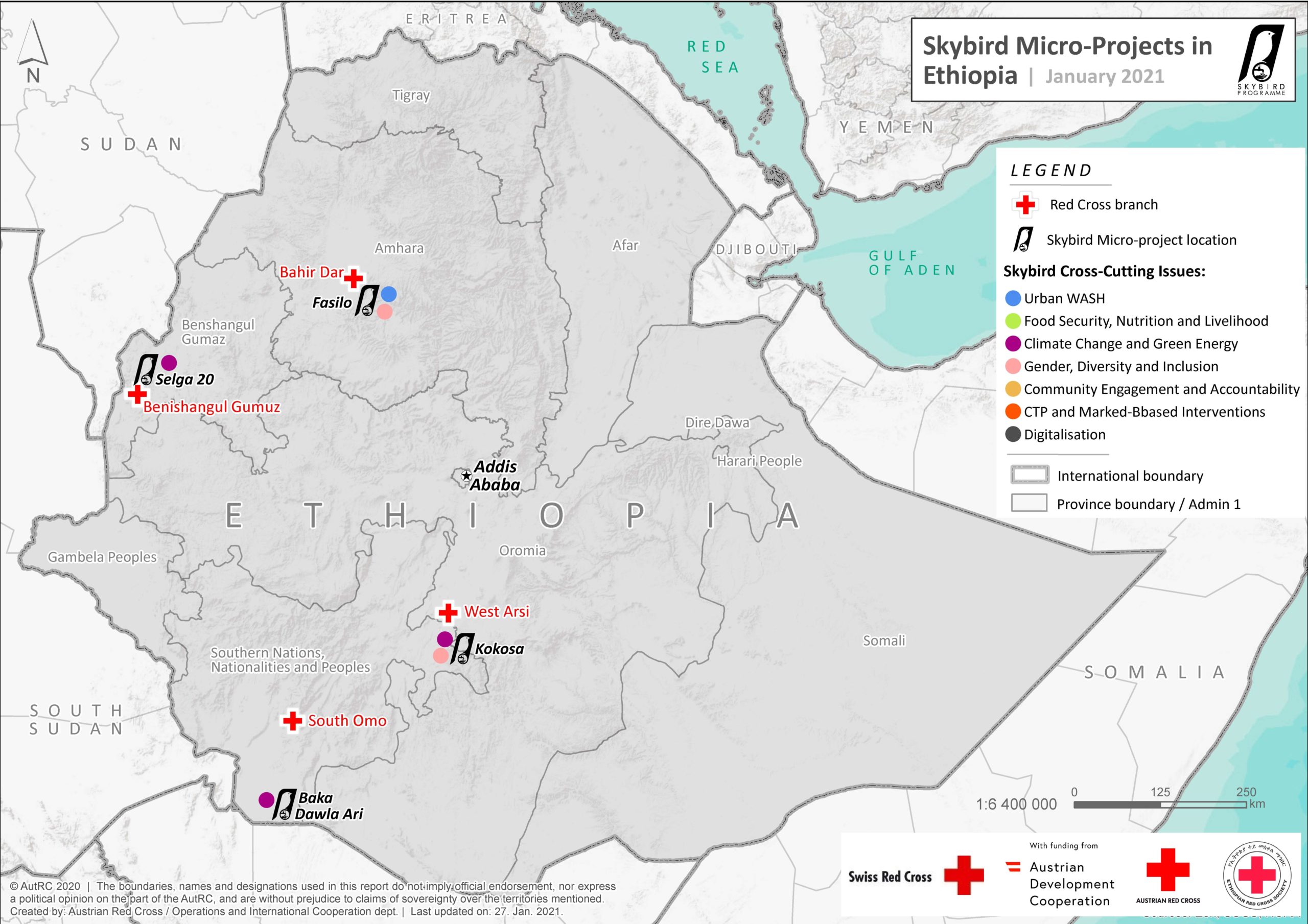
Map of Ethiopia showing all locations of micro-project implemented on Branch level
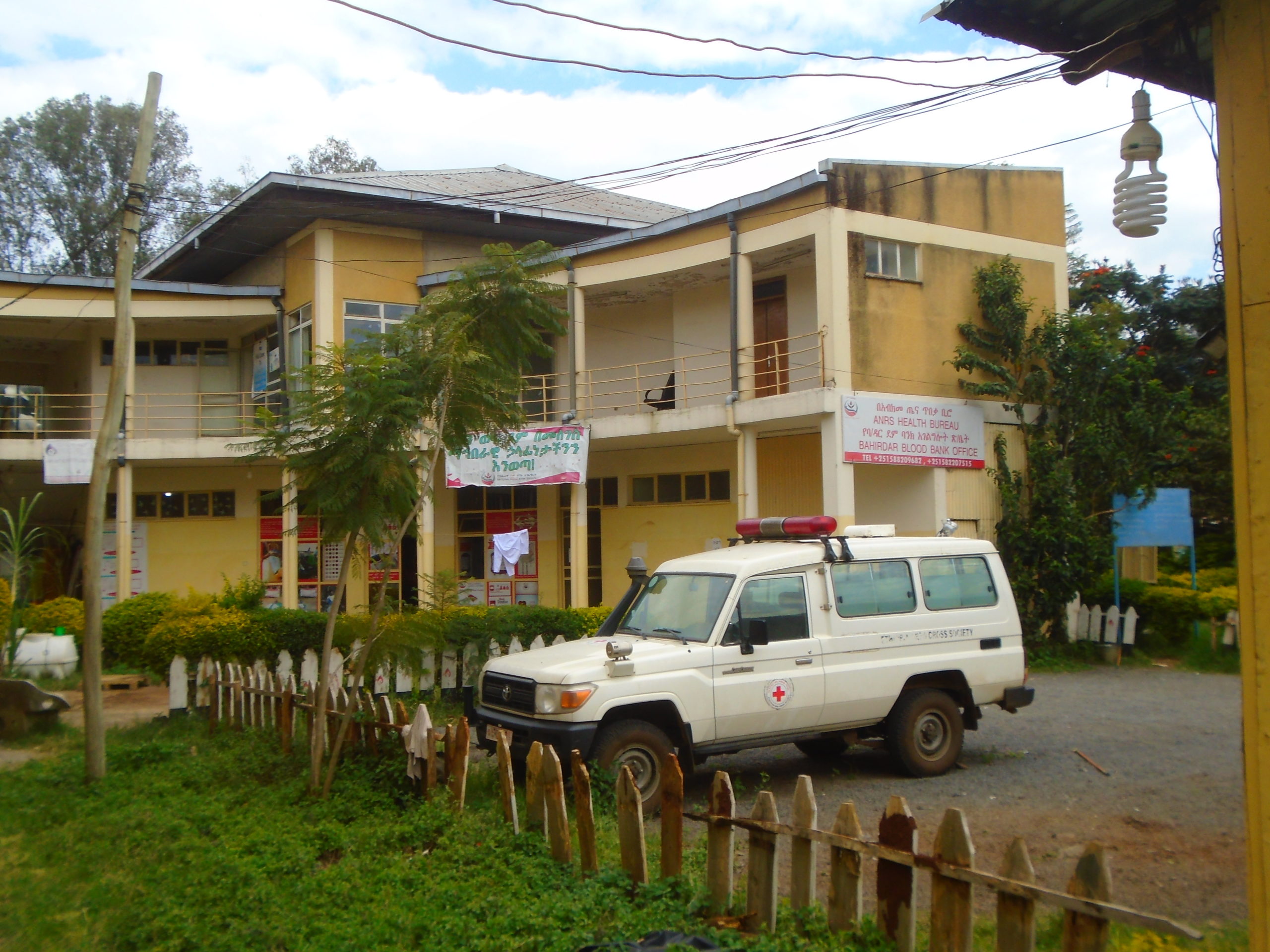
Branch office in Bahir Dar
*Bahir Dar Branch: Welfare improvement through accessing sanitation and hygiene facilities
Urban WASH and Gender, Diversity and Inclusion
*Due to many difficulties, this project had to be postponed to the 2nd cycle. Updates will follow as we get them.
In this town, a lack of adequate sanitation facilities and awareness about the impact of bad hygiene practices and their interlinkages with health and income generation poses as a major issue.
As there are no sanitation facilities at the market place, Bahir Dar Branch plans to construct an inclusive public toilet with possibilities to take a shower. The maintenance should be ensured through an integrative business model that allows to offer refreshments and fast food and other services along with the public latrine. This business model shall allow women to manage the facilities and generate a more diverse income.
If possible, the public sanitation facility will be constructed as a biogas toilet, in order to combat deforestation and offer a new source of energy.
To help combat open defecation practices, there will be public awareness raising campaigns which accompany the construction of the public latrines.
Benishangul Gumuz Branch: Rehabilitating degraded land of Selga 20 Kebele to improve the potable water source
Climate Change and Green Energy
The availability of natural resources in Benishangul Gumuz is frequently threatened by the expansion of urban settlements which lead to severe degradation of forest land. Ever since the clearing of forest land in the upstream region of Selga 20 Kebele, the cat
chment area suffers from increasing land degradation. The formation of gullies lead to water shortages as the community well, constructed by Ethiopian Red Cross and Austrian Red Cross in 2014, is not replenished while the arable land also degrades further.
The planned interventions focus on awareness raising and practically engaging the community in the rehabilitation efforts. This includes training on soil and water conservation techniques for the 319 households as well as the establishment of a project task force and the preparation and management of a nursery site. A particular focus is on the continuous sharing of experiences, the inclusion of indigenous knowledge and the participation of women in the project.
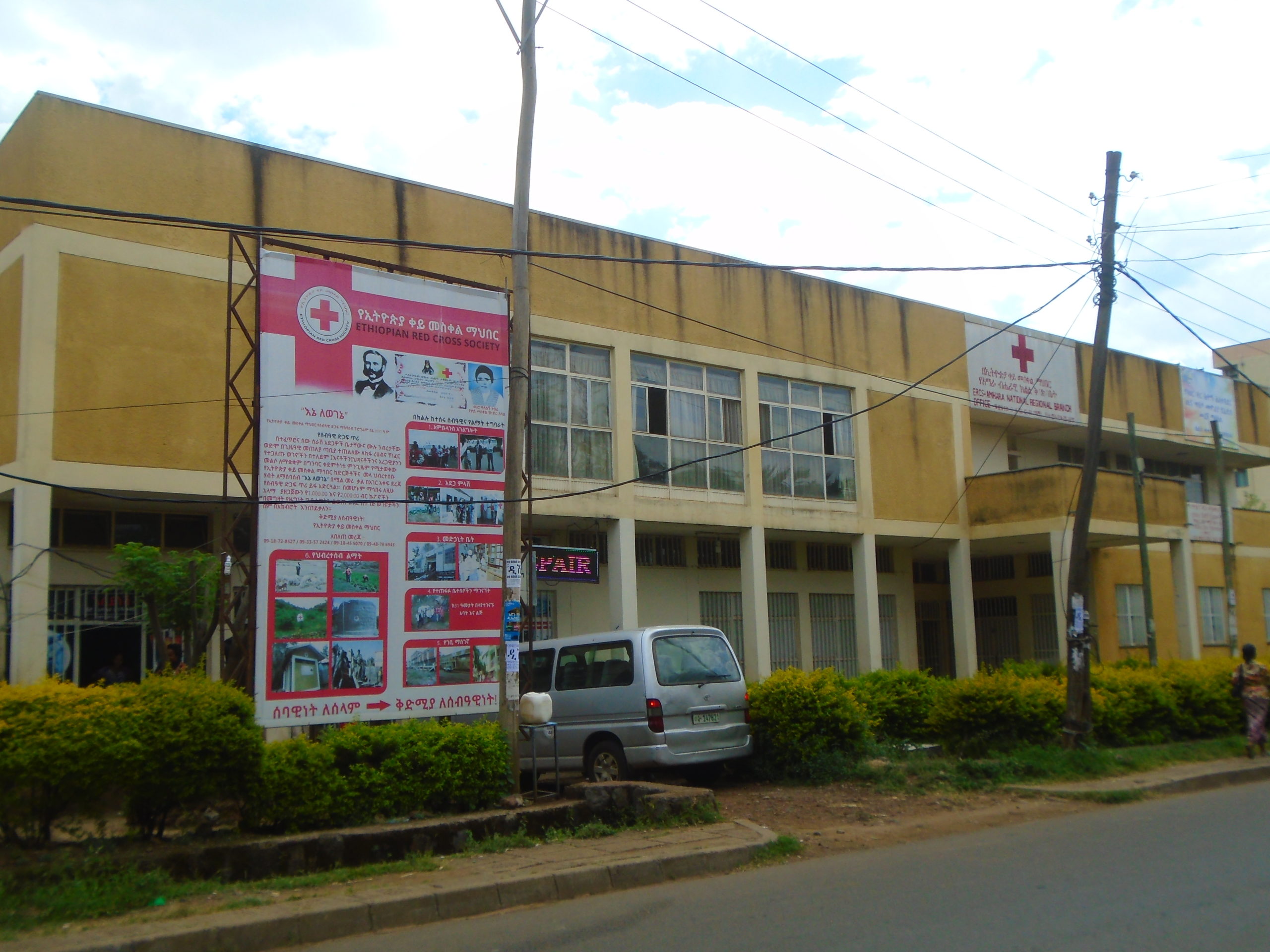
Branch office building in Benishangul Gumuz
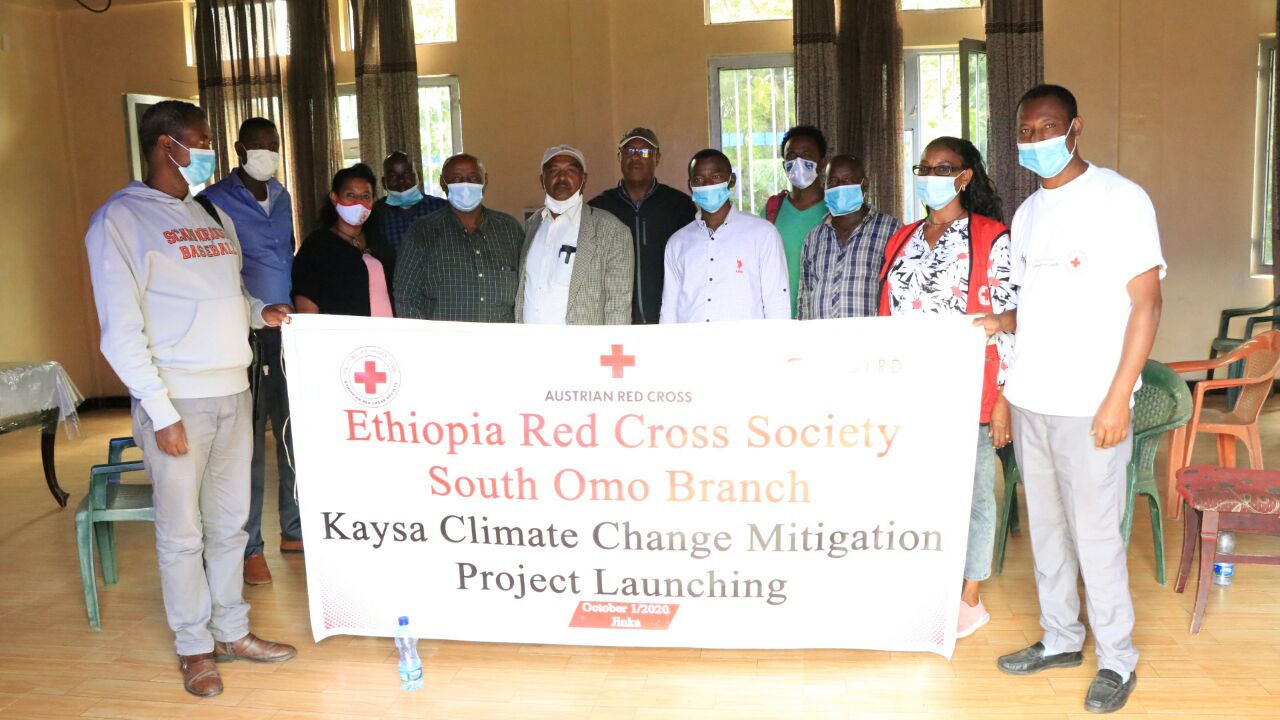
Kick-off meeting with Branch members and officials
South Omo Branch: Kaysa climate change mitigation project
Climate Change and Green Energy
Baka Dawla Ari Woreda is one of the South Omo Zone Woredas suffering from an increased frequency in floods which resulted from the deforestation and uncontrolled overgrazing of the area. To reduce suffering and maintain the dignity of the flood-affected population, the project aims at raising awareness among the community through a mix of indigenous and modern soil and water conservation techniques.
Furthermore, male and female community volunteers will be trained in conservation techniques and the planting of indigenous trees. Additionally, 124 households will receive fuel efficient cooking stoves to promote alternative energy sources. As most members of the community now rely on income generated through selling charcoal, livelihood interventions shall diversify the income streams. This includes the establishment of a cooperative which produces and sells the energy efficient cooking stoves.
West Arsi Branch: Improving gender equality and livelihood status of Kokosa District
Gender, Diversity and Inclusion and Food Security, Nutrition and Livelihood
95 % of the district’s population depends on rain-fed and subsistence agriculture, traditional livestock rearing, labour renting, firewood sale, and petty businesses. Additionally, deeply rooted gender and social norms within the community foster the disparities between man and women. Women generally have no right to access, own, control, use or exchange resources without the good will of men.
The project therefore aims at establishing advocacy groups for gender-parity lobbying, holding trainings on gender equality for key stakeholders, organizing self-help groups and experience sharing visits for role models both male and female and host reflection workshops on gender equality for men.
To improve food security and livelihoods, women shall receive training in nutrition, crop rotation and seed utilization. Additionally, they will receive a training on how to start a business and how to establish a village savings group. To kick-off their businesses, participants will receive agricultural tools, improved seeds, sheep and some seed money.
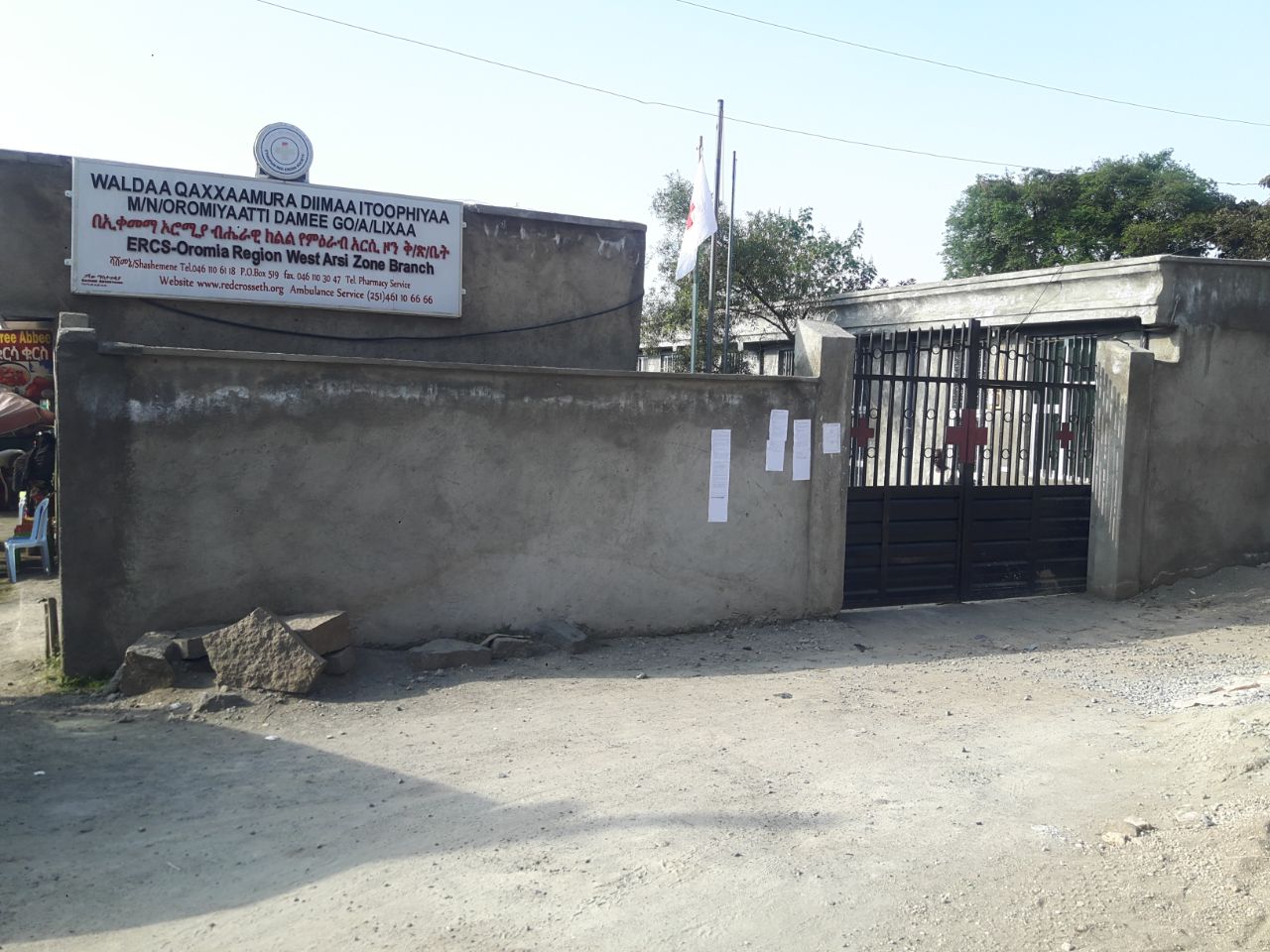
Branch office building in West Arsi
Stay up to date
on the progress of the projects through our online networking tools.